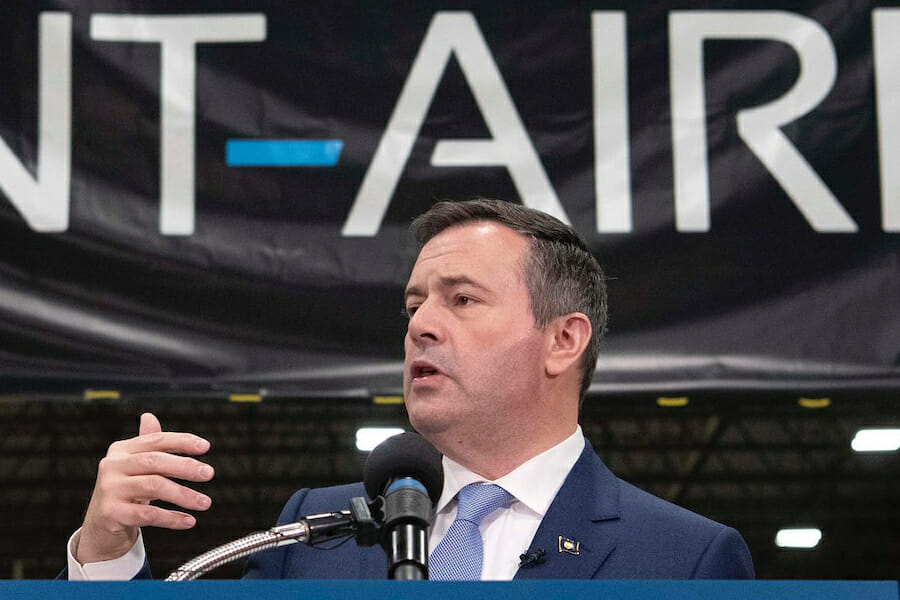
Managing Regional Energy Security in an Era of Misinformation
At a recent press conference, Alberta’s Premier Jason Kenney decried the spread of misinformation on online social networks (OSNs) targeting the Canadian province’s energy industry. In response, he set up an OSN ‘war room’ where social media experts actively counter the diffusion of industry-specific competitive misinformation. Their efforts to root out deceptive advertising, unverified information created by rival countries or entities, and other equally nefarious activities are supported by a $30 million war chest.
However, Alberta is by no means the only province or state to experience a concerted campaign to discredit and distort the activities of its energy sector. Competitive misinformation has also played a part in the recent spate of attacks on oil tankers in the Gulf of Oman and contributed to the re-emergence of regional tensions. No wonder the World Economic Forum has identified misinformation as a growing threat to international security.
From an energy perspective, competitive misinformation has the potential to distort pricing, availability, affordability, and accessibility in regional and energy markets. Worse still, the use of misinformation by states to preserve their dominant energy status has potential security implications for other key sectors, particularly tourism. Put simply, the more societies and critical infrastructures rely on OSNs for business purposes, the greater their vulnerability to competitive misinformation.
Thanks to OSNs, spurious sources of information highlighted by national leaders or social media influencers can spread very quickly and crash energy markets in seconds. Once people believe misinformation it becomes very difficult to reverse and counter with the facts. Consequently, offensive and competitive misinformation has become a feature of ‘soft’ and ‘hybrid’ strategies designed to compromise or discredit the national interest and security of rival states and actors.
So how can states and key stakeholders in critical energy and infrastructure sectors cope with the cascading security impacts of competitive misinformation? Given the volatile nature of the energy industry, high leverage intervention strategies are needed to reduce the spread of misinformation in its early stages, and accelerate the diffusion of the correct information across the widest propagation distance on OSNs.
An important first step is to set up rapid response teams to proactively disseminate accurate information regarding the targeted energy sector. It is important not to wait until there is a digital attack before mapping out a response strategy. Given the time and cost involved in quelling OSN wildfires, it is essential to set up in advance standing institutions or committees that provide general publics with the knowledge required to effectively counter misinformation about critical industries and sectors. Such institutions should also be equipped to forecast, address and respond to misinformation activities as they arise. A good example is the ‘East StratCom Task Force’ set up by the European Union to counter alleged disinformation campaigns by Russia.
International law also provides redress mechanisms against the intervention of one country in the domestic affairs of another. The propagation of deliberately false information intended to sow doubts, produce dissents or shape negative narratives about another country may constitute a violation of the non-intervention principle of customary international law. Similarly, Articles 3 and 4 of the 1936 International Convention on the Use of Broadcasting in the Cause of Peace (the Broadcasting Convention) a treaty signed by several countries, expressly prohibits the broadcasting of false news. The dissemination of misinformation on OSN falls within the provisions of this treaty and could form the basis for international litigation against a violating country. For example, under Article 3 (2) of the Broadcasting Convention, a country adversely impacted by competitive misinformation could request the author of such news to stop or rectify the offending content without delay. In addition to halting the spread of misinformation, an adversely affected country may seek compensation against a defaulting entity or country when such misinformation produces adverse economic effects.
The private sector also has an enormous role to play in limiting and managing the impact of competitive misinformation on operations and activities. Given the scale, complexity and potential damage to a company’s reputation and profitability, it is necessary to develop integrated and comprehensive information management systems that forecast, identify and counter the spread of misinformation on OSN platforms. Holistic risk management strategies and plans can help a company to reduce its risk exposure and effectively manage the cascading impacts of competitive misinformation.

